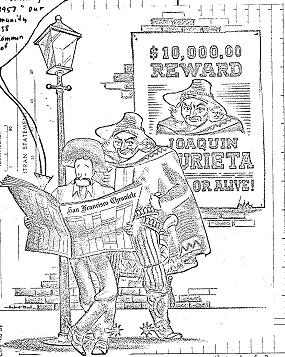|
Global Peace & Freedom |
Fred Bernard Wood was a lifelong advocate for world peace. He did serve in the US Army Reserve Office Training Corps (Army ROTC) as an undergraduate at the University of California at Berkeley. After the Japanese attacks at Pearl Harbor on December 7th, 1941, Fred Bernard and his ROTC classmates were graduated early, and either commissioned in the active military duty or assigned to work with the military as civilians. Fred Bernard was assigned by the US Army Signal Corps to work as a civilian on microwave radar at the Radiation Laboratory at the Massachusetts Institute of Technology, Cambridge, MA. At MIT, he worked closely with the US Army, US Army Air Force, and US Navy as well as civilian scientists and engineers, all as members of the radar team at MIT. Notwithstanding this service to help defeat the Axis Powers, Fred Bernard was active in local and national peace movements from the immediate post-WWII period through the next several decades. Indeed, he was gravely concerned about the huge costs and adverse consequences of war, and that the work of scientists and engineers could be used to fuel the military-industrial complex rather than for promoting peaceful co-existence and the peaceful applications of science and technology. Scientists in the StruggleFred Bernard struggled with the tensions felt by scientists who saw their work used for military purposes against the Nazi and Axis aggressors, but warned about the long term implications of using science for war. Many leading scientists felt likewise, including the likes of Albert Einstein, Norbert Weiner and others. Fred Bernard’s views were probably similar to those of Louis Ridenour, who also work on radar, and who argued in an Atlantic Monthly article (circa 1945) that scientists not only should support peaceful, as opposed to military, applications of science and technology, but should join the fight for peace itself. On October 7th, 1963 Fred Bernard sent a letter to the president of the Unitarian Universalist Association congratulating him on leading a contingent in the civil rights demonstration in Washington, D.C. in August 1963. Fred Bernard indicated his support for the demonstrators, but felt he could make a more effective personal contribution by working on a systems theory paper titles “Negentropy and the Concepts of Freedom, Democracy, and Justice”. One such idea was re-framing the peace movement as a government in exile, acting on behalf of humanity, as proposed by Alfred Hassler of the Fellowship of Reconciliation, another organization that Fred Bernard supported for decades. University ActionAs the Vietnam War escalated in the late 1960s, Fred Bernard actively participated in events at the San Jose Peace Center. He tried to be supportive of the student and faculty war opposition movement at UC Berkeley. On May 7th, 1970, in response to the invasion of Cambodia and the National Guard killings of student demonstrators at Kent State, the students and faculty in the UC Berkeley Department of Electrical Engineers issued a statement opposing the war in Southeast Asia and calling for anti-war mobilization. Similar protest actions were taken by numerous academic departments at Berkeley, as well as at campuses across the U.S. On May 11th, 1970, Fred Bernard responded by writing to the UC Berkeley electrical engineering students and faculty expressing sympathy with their war opposition. True to form, Fred Bernard used this to frame the issue in terms of the survival of civilization and the need for ethically and socially responsible behaviors, especially when it comes to use of science and technology. On May 14th, 1970 Professor Richard White responded to Fred Bernard with a letter of thanks and noting that on campus engineers are now getting involved both in the anti-war effort and in the interdisciplinary activities of the type advocated by Fred Bernard. Fred Bernard also responded to the UC Berkeley Sociology Department’s anti-war statement and related mobilization actions, which included cancelling classes for the week of mobilizing. Fred Bernard’s letter of May 18th, 1970 provided a point-by-point response to the UC Berkeley Sociology Department resolution. Fred Bernard concurred that the U.S. should withdraw immediately from Southeast Asia, release all domestic political prisoners, and end racist foreign policy. Fred Bernard was not supportive of abolishing campus ROTC, in light of his positive experiences as an ROTC student decades earlier. Also, he was equivocal about abolishing weapons research on campus and instead limiting that work to unclassified projects as a compromise that would keep academic voices engaged with the military. As always, Fred Bernard was trying to balance all the considerations in arriving at his policy positions, but within the overall goal of achieving global peace and freedom. Postscript: Fred Bernard continued
his involvement with the San
Jose Peace Center until mid-2003 when he moved to Flagstaff, AZ.
A few covers of their newsletter, Peace Times, are shown here. |

 The escalation of the Vietnam War and the
Civil Rights Movement in the 1960s deepened Fred Bernard’s
commitment to peace, albeit in his own way, during which time he sometimes used the
The escalation of the Vietnam War and the
Civil Rights Movement in the 1960s deepened Fred Bernard’s
commitment to peace, albeit in his own way, during which time he sometimes used the  On
December 10th, 1963, Fred Bernard
On
December 10th, 1963, Fred Bernard